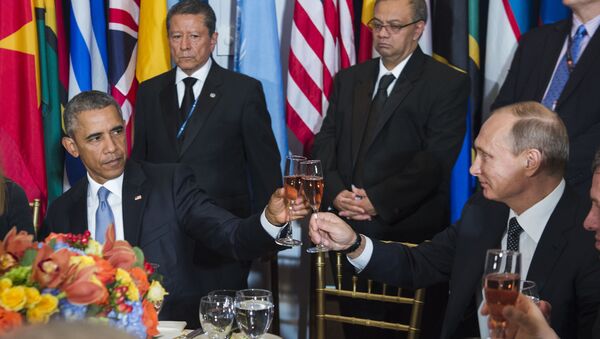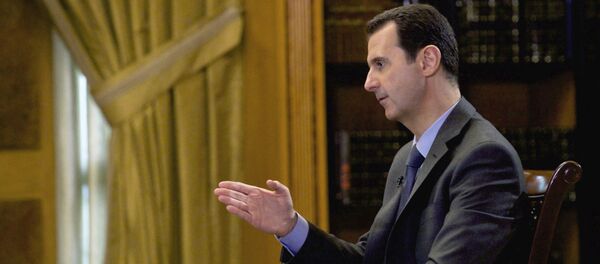Although this is a positive development for Syria, US hardliners and their Middle Eastern allies, who tried to push through a "regime change" scenario in Syria, are not happy about it.
"Obama finally ceded to the more democratically defensible position that the Syrian people should pick their own leaders. After all, if Obama is right about how much the Syrian people hate Assad, elections would empower them to implement their own 'regime change' through the ballot box," the analyst observed. "But that uncertain outcome is not what the [neocons] want. They want a predetermined result – Assad's ouster – regardless of the Syrian people's wishes."
Parry's opinion piece came in response to a Washington Post editorial, chastising the Obama administration for what they see as an about-face following four years of a (failed) "Assad-must-go" strategy.
For the Washington Post, democratic elections in Syria are "a likely recipe for an impasse." The United Nations Security Council does not see it this way.
On Friday, the UN Security Council unanimously adopted a resolution designed to create a roadmap towards peace in the war-torn country. The agreement sets a timeframe for a ceasefire followed by the UN supervised "free and fair" elections in Syria.
The document does not say whether Assad can or cannot take part in the election, but Saudi Arabia, Turkey and other Sunni states will make every effort to prevent him from running.
Assad "is an Alawite, an offshoot of Shia Islam. Further condemning Assad in their eyes, he seeks to maintain a secular government that protects Christians, Alawites, Shiites and other minorities," Parry explained.
The latter "have made Assad's ouster a cause célèbre despite the disastrous experiences overthrowing other secular regimes in Iraq and Libya," Parry observed.
In the past, the US president, according to the investigative journalist, "has been highly sensitive" to what this group thinks. But recent developments suggest that Obama might have opted for pragmatism instead of "neocon/liberal-hawk ideological desires."




